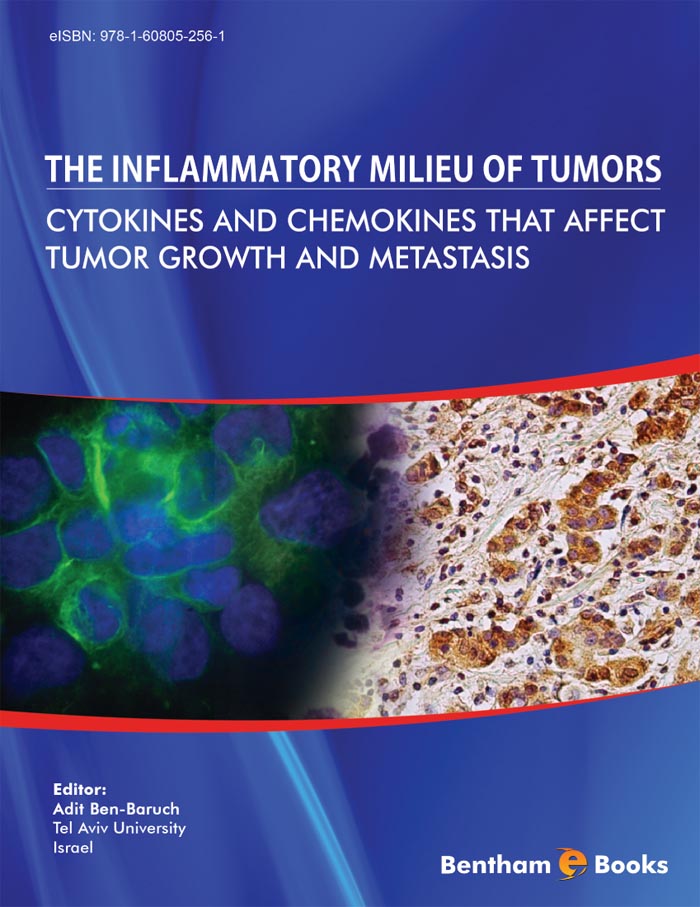Introduction
Tumor development and progression are multi-factorial processes, in which genomic alterations and modifications in gene expression in pre-malignant cells are joined by deleterious microenvironmental factors. The tumor microenvironment contains stroma cells and leukocytes, soluble factors and matrix components. The intensive interplay that exists between the host factors and the tumor cells plays a major role in dictating the final outcome of the malignant process.
Inflammatory mediators are pivotal microenvironmental factors present in the tumor milieu. These inflammatory components support cell growth and invasion, induce mutagenesis, increase angiogenicity, and suppress potential anti-tumor immune functions. The inflammatory constituents that prevail in tumors include leukocytes and soluble mediators - cytokines and chemokines.
This e-book describes the roles played by these mediators in malignancy, and explains the basis for their consideration as therapeutic targets in cancer.
The e-book is a timely overview of the roles played by inflammatory soluble mediators in neoplastic diseases. The topics addressed in this volume serve as a handy reference to investigators studying basic aspects of the malignant tumor growth, to clinicians who wish to better understand the processes involved in malignancy, and to pharmacological professionals seeking novel candidates for therapeutic intervention in cancer.

